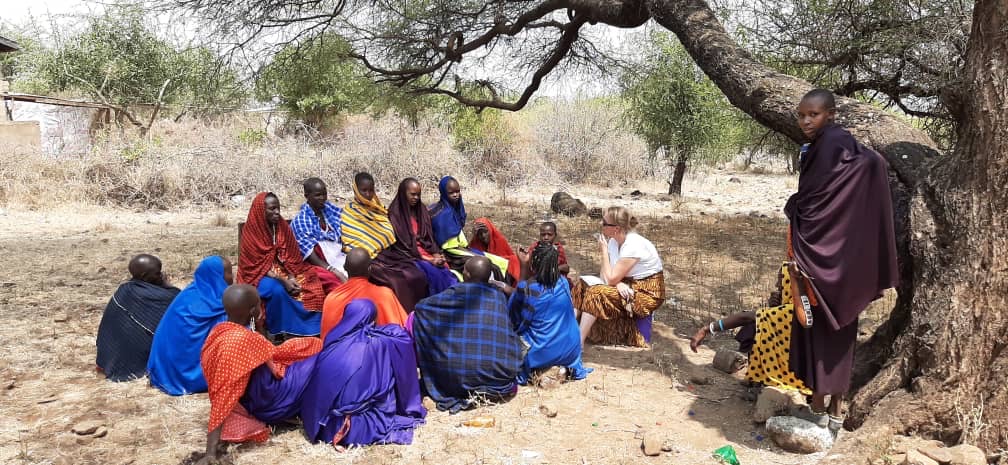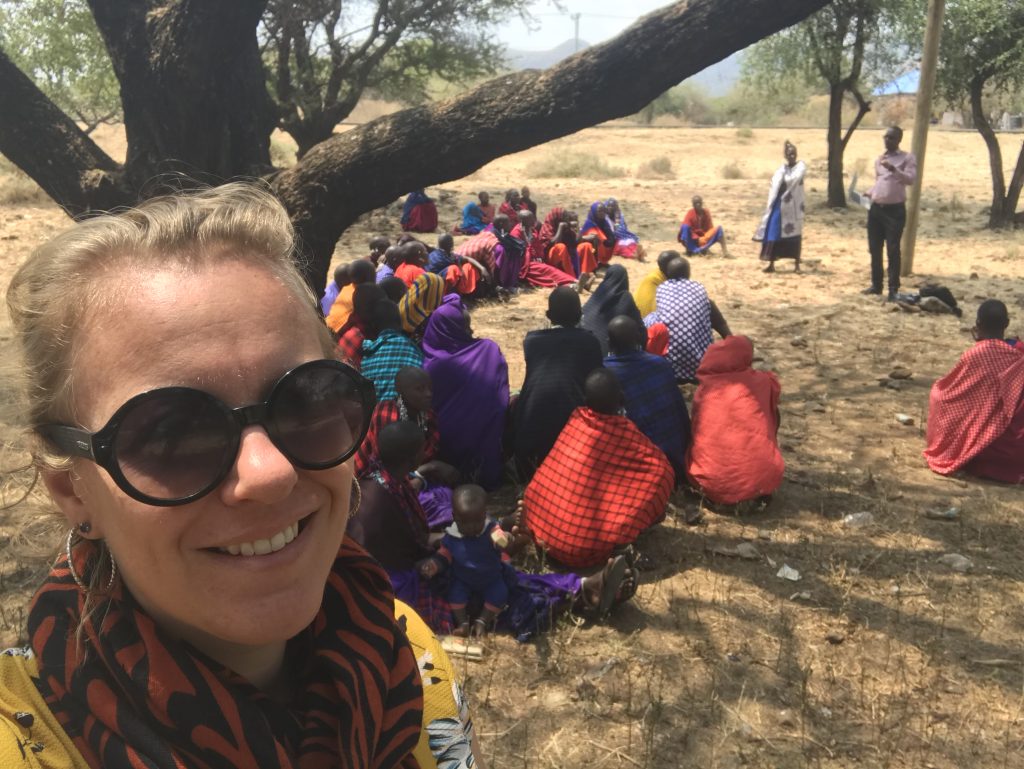Research fellow in the field

Last week, we went with our team to Monduli Region again to do a final assessment of our programme Embiotishu. It was a great experience as this time I decided to be involved in the data collection myself, as in, doing focus group discussions with a Maasai interpreter. It is not the ideal way of data collection as bits and pieces of the discussion needed to be translated and summarized several times. But we managed.
Embiotishu
We have developed embiotishu (which means health in Maa) in order to increase access to health and health information for Maasai with a focus on sexual and reproductive health. Maasai can call a free number where they will hear a menu from where they can choose which information they would like to receive. It is a so-called interactive voice response calling (IVRC) system whereby the information is spoken in Maa language. There is information available about the male and female reproductive health systems, about family planning, about possible contraceptive methods, about sexually transmitted diseases including HIV and about infertility. Through an interface, we can see how many times the system has been called and I can tell you…it’s been a lot in the past year.
Focus Group Discussions
The fact that the system was called many times, was confirmed by Maasai women that I talked too. Several of them say they call every day, some even every hour. When I asked them about the contraceptive methods, they seem to be mostly interested in injection and implant. During the discussion, one mama kept asking me what I do use. It’s almost an art to not give your experience or opinion as a research fellow during such discussion. When we ended our discussion, and I told that I, just like most other Dutch women of my age, use a loop, hell broke loose. They started laughing, bickering like chicken and asked me questions about how it feels. They just didn’t believe me when I told I don’t feel anything of it.
Further plans
Maasai told they have their own way of family planning by staying abstinent for three years after giving birth. During the focus group discussions, it was mentioned by many women that they have started using a family planning method. This was confirmed by the nurse of the local dispensary who saw a huge rise in requests for family planning methods and information. We now will have to advocate for the system in other regions where Maasai are living and to find funds for scaling up the system to these other regions, expanding the information and add other languages. In order to establish a true effect of the system on knowledge and use of family planning (our main aim), we will need to conduct a proper cluster randomized trial. But first, we are enjoying the results of this participatory action research.
